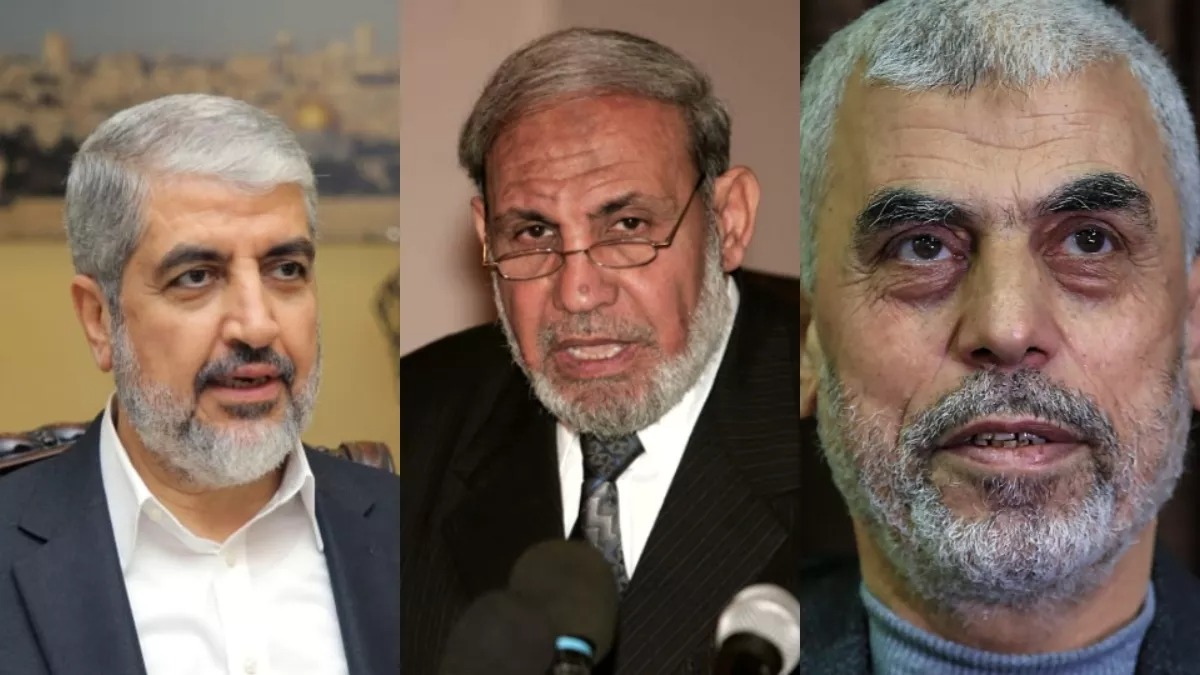
New Delhi: Hamas chief Yahya Sinwar, who carried out the attack on Israel on October 7, 2023, has been killed (October 17).
The October 7, 2023 attack killed 1,200 Israeli civilians, which is considered to be the biggest terrorist attack on Israel till date. After this, tension spread throughout the Middle East.
Yahya Sinwar, 61, spent two decades in Israeli prisons before returning to Gaza and emerging as its top leader. The Israeli military posted on X, writing, “Killed: Yahya Sinwar.”
It is worth noting that earlier the Israeli army had expressed the possibility of his death, but was not able to say anything concrete. After this, a DNA test was done to correctly identify the body of a person who looked like Sinwar. US President Joe Biden was also informed about this.
After the death of Hamas chief Yahya Sinwar, the question is now being raised that who will now take command during the Gaza war? Meanwhile, there are many people whose names are in discussions. Read in this news about the people who lead Hamas…
Mahmoud al-Zaher
One of Hamas' founding members, Mahmoud al-Zahar has been at the forefront of making Yahya Sinwar a successful figure. Known for his hardline stance, even by Hamas standards, al-Zahar was instrumental in shaping the group's ideological framework, which focuses on both militant resistance against Israel and Islamist rule in Gaza. Al-Zahar also played a key role in the group's rise to power following the 2006 Palestinian legislative election and served as its first foreign minister.
Despite surviving several Israeli assassination attempts – in 1992 and again in 2003 – al-Zahar remains an important figure in Hamas's political structure today.
mohammad sinwar
Another potential successor is Yahya Sinwar's brother, Mohammed Sinwar. Like his brother, Mohammed is a long-time leader within Hamas' military wing.
According to reports, Mohammed is as radical as Yahya. Meanwhile, US officials have expressed concern that his leadership will make peace talks even more challenging.
Mohammed has been a key figure in the group's military operations, having so far survived several assassination attempts by Israel.
Mousa Abu Marzuq
Moussa Abu Marzouk, a senior member of Hamas' political bureau, is another possible contender. He helped establish Hamas after splitting from the Palestinian Muslim Brotherhood in the late 1980s.
Abu Marzuq was once head of Hamas's political bureau and had long been involved in its organisational and financial operations, including support for militant activities.
Despite being jailed in the United States in the 1990s for his involvement in terrorist activities, Abu Marzuq was deported to Jordan and remains an influential figure within the group’s political apparatus.
Although Abu Marzouk has spent much of his time in exile, his experience and ties to Hamas's core ideology make him a strong candidate to take over political leadership.
Mohamed Deif
Mohammed Deif, the commander of Hamas' military wing, the Izz al-Din al-Qassam Brigades, is rumoured to be either dead or seriously injured following an Israeli air strike.
However, reports from August 2024 suggest he may still be alive. Deif, who is credited with masterminding many of Hamas' most sophisticated operations, including the October 7 attack, is seen as a "hardline" figure.
Khalil al-Hayya
Khalil al-Haya is a prominent figure within Hamas' political bureau, currently based in Qatar and has played a key role in ceasefire negotiations in past wars. Al-Haya's leadership could be seen as a viable option for the group, especially if Hamas seeks negotiations to end the current war in Gaza.
His participation in the 2014 ceasefire talks with Israel demonstrated his ability to engage in high-level negotiations and his leadership may provide greater diplomatic avenues for Hamas.
Al-Haya survived an Israeli airstrike in 2007, but members of her family were killed in the attack. Her political acumen combined with her connections to international mediators, particularly in Doha, could help both Israel and Hamas negotiate ceasefires.
Khaled Mashal
Khaled Meshaal, who led Hamas for more than a decade from 2006 to 2017, is a respected figure within the group. However, he has fallen out of favor with some key factions. During his leadership, Meshaal has overseen some of Hamas' most important military and political milestones. His public opposition to Syrian President Bashar al-Assad during the Syrian civil war was at odds with Iran, a major backer of Hamas.
--Advertisement--

 Priya
Priya Share
Share



